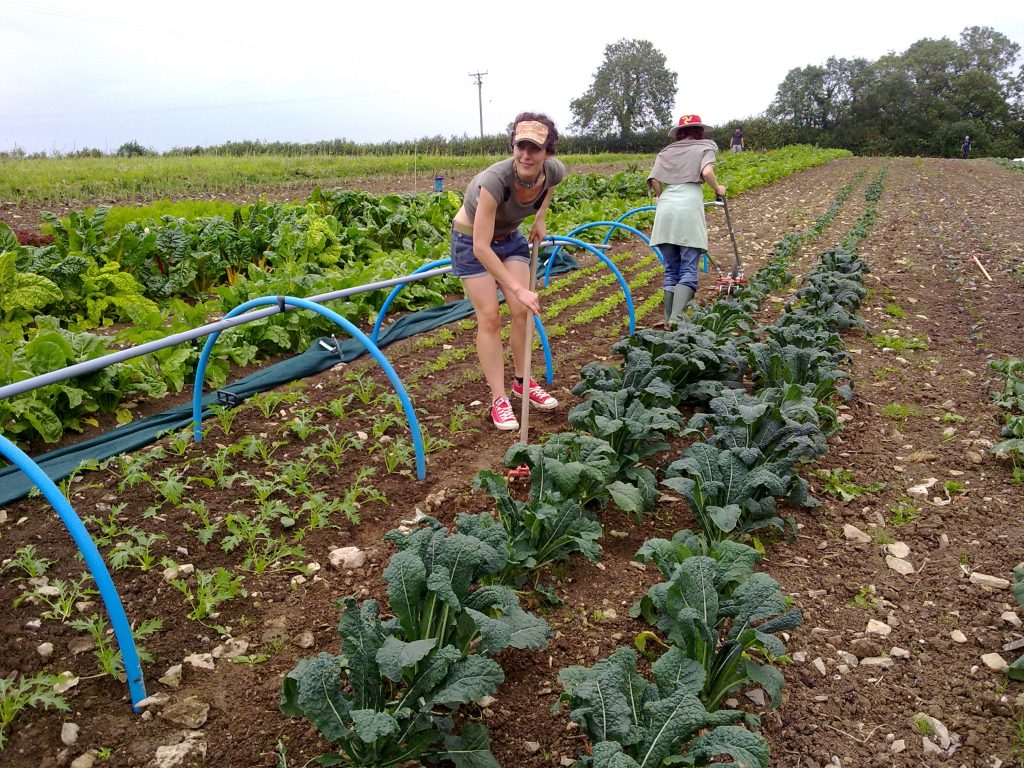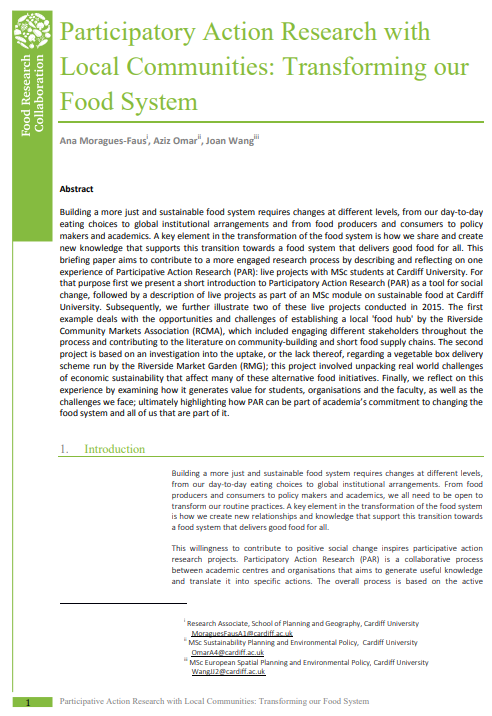Building a more just and sustainable food system requires changes at different levels, from our day-to-day eating choices to global institutional arrangements and from food producers and consumers to policy makers and academics. A key element in the transformation of the food system is how we share and create new knowledge that supports this transition towards a food system that delivers good food for all. This briefing paper aims to contribute to a more engaged research process by describing and reflecting on one experience of Participative Action Research (PAR): live projects with MSc students at Cardiff University. For that purpose first we present a short introduction to Participatory Action Research (PAR) as a tool for social change, followed by a description of live projects as part of an MSc module on sustainable food at Cardiff University. Subsequently, we further illustrate two of these live projects conducted in 2015.
The first example deals with the opportunities and challenges of establishing a local ‘food hub’ by the Riverside Community Markets Association (RCMA), which included engaging different stakeholders throughout the process and contributing to the literature on community-building and short food supply chains. The second project is based on an investigation into the uptake, or the lack thereof, regarding a vegetable box delivery scheme run by the Riverside Market Garden (RMG); this project involved unpacking real world challenges of economic sustainability that affect many of these alternative food initiatives. Finally, we reflect on this experience by examining how it generates value for students, organisations and the faculty, as well as the challenges we face; ultimately highlighting how PAR can be part of academia’s commitment to changing the food system and all of us that are part of it.


